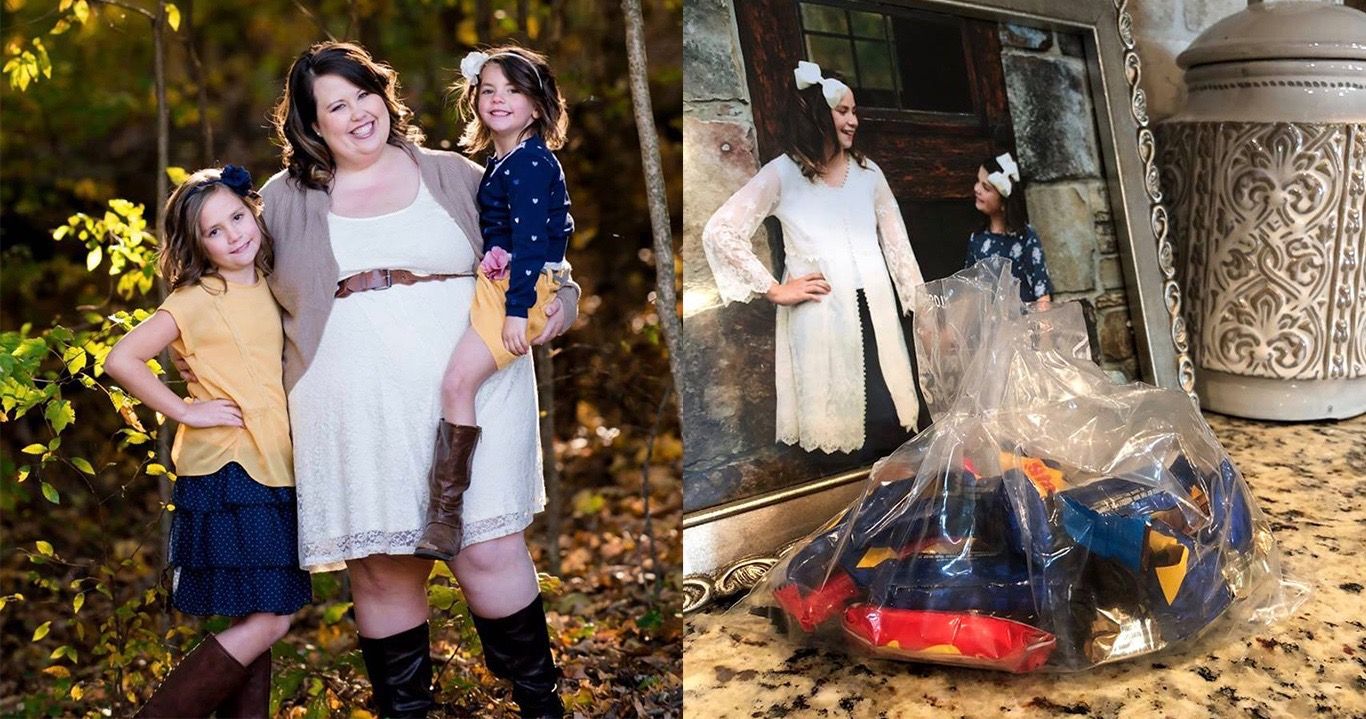In most families, Halloween is one of the most highly anticipated holidays of the year. Yet for Amy Beth Gardner, of Cleveland, Tennessee, the experience has been less than joyous.
In 2014, Gardner opened her home to two foster children, Bridgett, then 5, and Breonna, then 9, after years of struggling with infertility. That fall, she noticed that her foster daughters would freeze whenever she brought up Halloween. When she asked the girls why they reacted so strangely, she wasn’t prepared for the story they told her.
In a Facebook post, Gardner says the girls recounted “how they had once been given candy for Halloween only to have an adult take the candy and eat it in front of them.” When the girls began crying, the adult had forced the girls to eat the empty chocolate wrappers. The tale left Gardner shocked.
When it came time to introduce a Halloween tradition in their home, Gardner gave the girls two plastic bags and a black marker when they got home from trick-or-treating and asked them to count the number of pieces of candy they had gotten. “When they finished counting, I helped them label their bags with the precise number of pieces of candy inside and, each time they would eat a piece of candy, I helped them relabel their bags,” she wrote.
In the following weeks, it became a routine to recount the pieces of candy before the girls went to bed. “I would sit and count their candy with them night after night, earning their trust one lollipop at a time,” Gardner wrote.
In 2017, Gardner says things surprisingly changed. On October 25, while Gardner was cleaning up after dinner, her youngest daughter, Bridgett, now 8, came to her with a bag of candy that she had gotten at a Halloween event. On the bag of candy, which was wrapped in paper. Bridgett had written, “Mom, I want to give you a taste of how much love I have for you by giving you my candy.”
The experience moved Gardner to tears. She was heartened that Bridgett was able to let go of her trauma and “give despite what had been done to her.”
“She filled a bag full of her very favorite pieces and gave them to me with so much earnest pride on her face,” Gardner wrote. “What if you and I show that same kind of courage today as we take inventory of our own pain – and allow the bitter to become sweet?”
According to experts, childhood trauma can extend into a person’s adulthood. Psychological trauma, including neglect, abandonment, and sexual abuse and physical abuse can have profound psychological, physiological, and sociological impacts and can have long-lasting negative effects on a person's health and well-being.
RELATED: Twitter Trolls Trump For Putting Halloween Candy On A Child's Head
A 1998 Kaiser Permanente and the Centers for Disease Control and Prevention study on childhood trauma found that harrowing experiences during childhood are a root cause of many social, emotional, and cognitive impairments that result in an increased risk of unhealthy self-destructive behaviors, risk of violence or re-victimization, chronic health conditions, low life potential and premature mortality.

